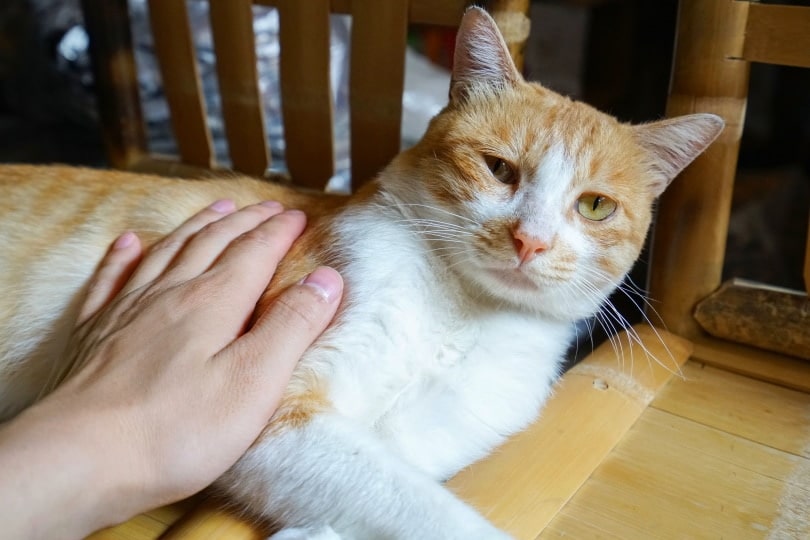[ad_1]
If your cat has suddenly stopped being affectionate, it can be unsettling. However, it likely isn’t because of anything you did. Cats can be pretty sensitive creatures and may react negatively to things that we don’t even realize happened, changing their behaviors due to stress or anxiety. Health issues of all sorts can also cause changes in behavior, including your cat’s affection levels.
Below, we’ll dive into these reasons and others that may make your cat less affectionate than before.

The 8 Possible Reasons Why Your Cat Isn’t Affectionate Anymore
1. Health Issues
Cats are very good at hiding their illnesses. In the wild, any sign of illness may have led to attacks from predators, so cats evolved to hide their illnesses as much as possible. Still, they may exhibit some subtle behavioral changes, such as no longer being very affectionate.
Pain can lead to a decrease in affection. Pets and cuddling can cause pain for cats with certain health issues, so they may avoid people altogether. All sorts of health issues fall into this category, such as dental problems and arthritis.
If your cat shows a sudden change in their behavior, we highly recommend making a vet appointment to rule out any underlying illness.
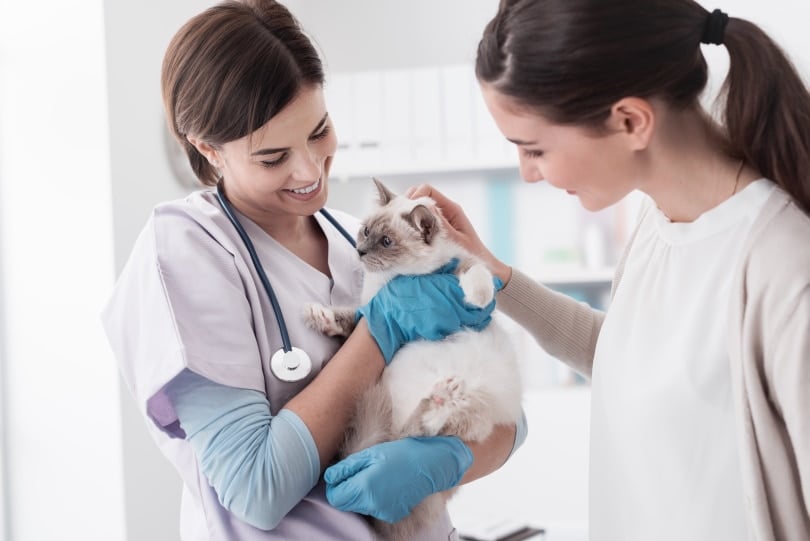
2. Aging
As cats age, they may become more independent. Kittens are exceptionally active and bond very closely with their owners. However, as they age, they naturally don’t need as much attention as they once did. Your kitten may have been very cuddly, but they may not grow up to be very cuddly. This is a normal part of their development and nothing to be worried about.
Often, adult cats prefer quieter, more relaxed environments. Their energy levels may decrease, and they may spend more time lounging around. This isn’t necessarily anything to be worried about, especially if your vet has given them a clean bill of health.
3. Stress or Anxiety
Cats are very sensitive to stress. If anything causes them stress or anxiety, they may withdraw and hide, which can make them less likely to be affectionate. Big things can disturb your feline and make them stressed. New pets, loud noises, and moving all fall into this category. However, your feline may also be affected by very small things, like rearranging your furniture.
Ensure a calm and stable environment if you can. However, sometimes, stressful events must just be waited out.
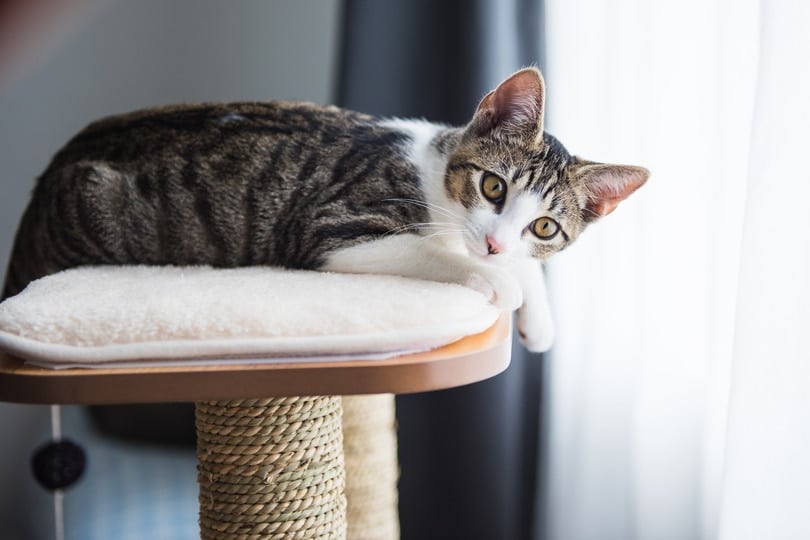
4. Traumatic Events
Sometimes, it isn’t a stressful situation that causes a change in behavior. It may be a single event that happened to make a big impact on your feline. If your cat was in your lap and something scared them, they may avoid your lap. It only takes one traumatic event for cats to suddenly be wary of something they’ve been doing for years.
Rebuilding trust takes time and patience. Cats may avoid the scary thing for some time and then suddenly be okay. Some positive reinforcement training may help cats “get over” the traumatic event by filling them with positive feelings. However, it’s important to do this slowly, as you don’t want to stress your cat out even more.
5. Changes in Routine
Cats thrive on routine and familiarity. Disruptions in their daily routine can cause stress, even if it’s something as small as getting home an hour later than normal. Changes in feeding times, sleeping arrangements, and play schedules can all cause stress and anxiety, leading to changes in their behaviors.
If your cat is experiencing these changes, you may want to reconsider the changes if possible. If you have to change your cat’s routine, try to do it slowly to prevent as much anxiety as possible. If this isn’t possible, then you’ll often just have to wait until your cat gets used to the new routine.
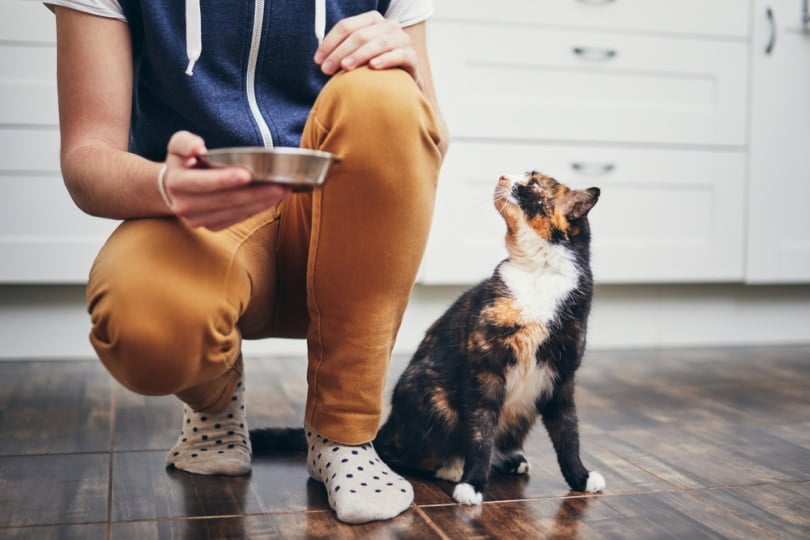
6. Overstimulation
Cats have a rather low tolerance for physical interaction and can easily become overstimulated when being petted. Overstimulation can lead to irritability and a decreased desire for affection. Learning to recognize a cat’s limits and respecting their boundaries is important.
If you try to pet your cat too much, they may try to avoid you because they know you’re going to try and touch them. If your cat is always avoiding being touched, then they probably won’t seek it out.
A cat’s tolerance for physical affection can be reduced over time, too. Kittens often have a higher tolerance than adult cats, for instance. Illnesses and stress can also change your cat’s tolerance, as we discussed above.
7. Socialization
Cats must be socialized as kittens to be accepting of people. If a kitten isn’t held and petted enough when they are very young, it can lead to them not being particularly affectionate. It’s important to adopt a kitten from a quality breeder for this reason. Otherwise, the kitten may not be properly socialized.
Socializing kittens can take a lot of work, but it is important for the cat to be well-behaved as an adult. Cats that aren’t socialized may also be more prone to fear and stress, which can make them less affectionate over time.
Adult cats tend to get “less” socialized as they get older and more set in their ways. Therefore, don’t assume that your kitten will continue to be accepting and cuddly with everyone as they get older. Adult cats tend to be more fearful.
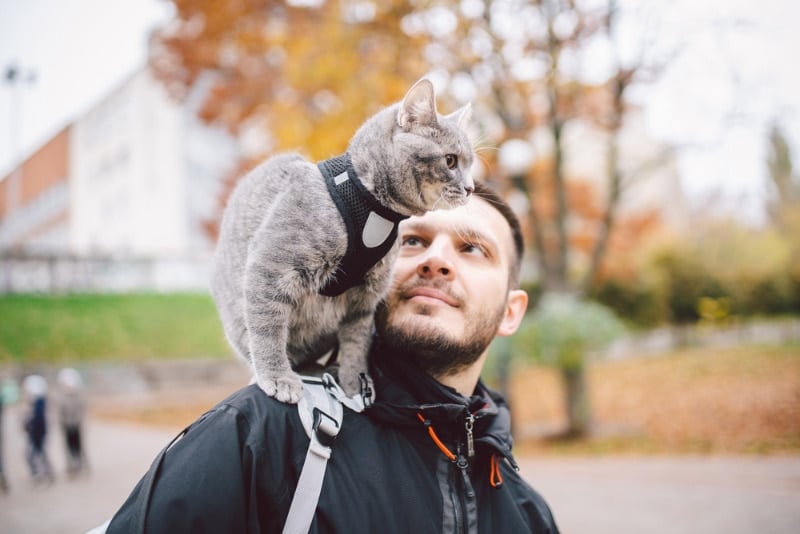
8. Seasonal Changes
Cats may also shift as the seasons change. The lighting levels will affect the cat’s hormones, which can make their personality change slightly. However, these changes aren’t often extreme, especially if your cat is spayed or neutered. Instead, you may only notice that your feline sleeps more or is more active—both of which may lead to less affection.

Conclusion
Cats vary widely in affection levels. Some breeds are exceptionally affectionate, like Ragdolls. However, others may not be very affectionate at all. Cats can vary quite a bit, too. Just because your cat belongs to a certain breed doesn’t necessarily mean they will be exceptionally affectionate. Socialization and experiences will affect your cat’s personality, too.
If your cat suddenly has a change of personality, you should seek out an appointment with your vet. Many health issues can cause behavioral problems, so these are important to rule out first and foremost.
Featured Image Credit: Piqsels
[ad_2]
Source link
